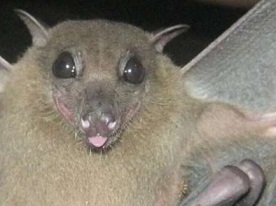
Bats do a lot of good for the world—they pollinate plants, they eat disease-carrying insects, and they help disperse seeds that help with the regeneration of tropical forest trees. Bats and a range of other mammal groups are also natural carriers of coronaviruses. To better understand this very diverse family of viruses, which includes the specific coronavirus behind COVID-19, scientists compared the different kinds of coronaviruses living in 36 bat species from the western Indian Ocean and nearby areas of Africa.









